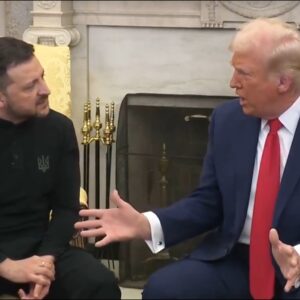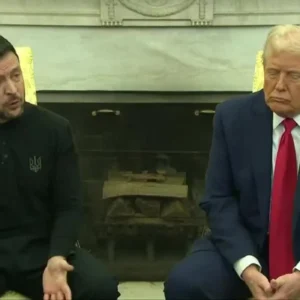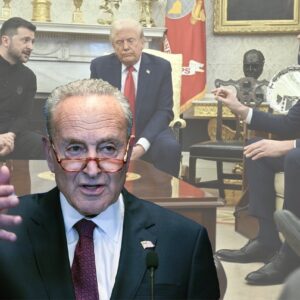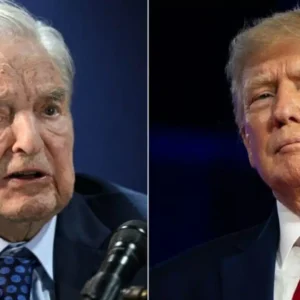In Thursday’s episode of “The View,” Whoopi Goldberg once again delved into a provocative discussion. With the Supreme Court’s announcement to take on the case regarding former President Donald Trump’s claim of immunity against federal prosecution, Goldberg’s comments seemed to reflect heightened liberal tensions in the current political landscape.
“Well, the Supreme Court won’t hear oral arguments until the end of April,” Goldberg began, setting the stage for her thought experiment. “Now, I just, you know, let’s look at a scenario where the Supreme Court says, yes, he has all those rights, he is immune from everything. You know what Joe Biden could do since he is presently president?”
“Well, the Supreme Court won’t hear oral arguments until the end of April,” Goldberg began, setting the stage for her thought experiment. “Now, I just, you know, let’s look at a scenario where the Supreme Court says, yes, he has all those rights, he is immune from everything. You know what Joe Biden could do since he is presently president?”
“He could throw every Republican in jail!” Goldberg asserted. In a chilling moment, the audience then began to clap about the idea before another host chimed in.
The conversation took a turn when discussing the motivations behind the Supreme Court’s reluctance to immediately take up the case in question. “Unfortunately, some people are saying the motivation is that there are certain conservative justices that have been appointed by Trump that want to help him,” Goldberg suggested.
WATCH:
The Supreme Court announced on Wednesday that it would take up the case to determine whether former President Donald Trump can assert immunity against federal prosecution in the election subversion case led by Special Counsel Jack Smith.
This historic move not only places Trump’s legal troubles in a holding pattern but also sets the stage for a pivotal examination of presidential immunity by the nation’s highest court.
Scheduled to hear arguments in the week of April 22, the Supreme Court’s decision to expedite the case signals the urgency and significance of the matter, especially given its timing amidst the heated race for the Republican presidential nomination.
Trump, who has been at the forefront of this race, finds himself navigating through legal complexities as the court previously entertained arguments in a separate case related to the 14th Amendment’s “insurrection ban” and its implications on his eligibility for office.
WATCH:
The core of the Supreme Court’s upcoming deliberation lies in whether former President Trump is entitled to broad immunity from federal prosecution for actions that are alleged to have occurred during his tenure.
The inquiry is not just a legal precedent but a profound constitutional question, marking the first instance where the court will address the immunity of a former president against criminal liability for purportedly illegal acts committed while in office.
The implications of this case are monumental, not just for Trump, who has maintained his innocence by pleading not guilty, but also for the broader understanding of presidential powers and accountability. The court, which boasts a 6-3 conservative majority, is expected to navigate through complex legal and constitutional terrains to reach a verdict that could redefine the limits of presidential immunity.
This case adds another layer to Trump’s legal challenges, portraying a scenario where legal precedents are scarce, and the stakes are high. Earlier in February, Trump filed the long-expected motion requesting a hold on the appeals court decision.
In a legal brief, the former president’s lawyers warned that “conducting a months-long criminal trial of President Trump at the height of election season will radically disrupt President Trump’s ability to campaign” against President Biden ahead of the 2024 election. Trump’s lawyers asked the justices to halt the trial proceedings pending their request for the full slate of judges on the D.C. Circuit to reconsider the case.
Trump was initially slated for a March trial date on charges relating to Special Counsel Jack Smith’s January 6 case, though the case has already been removed from the docket. A new trial date has not been posted, nor is one expected until the appeals processes have played out.





